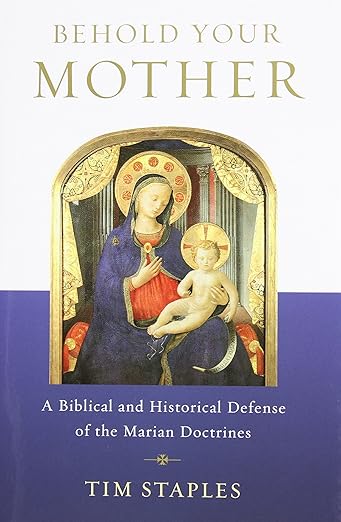Mary: Mother of God, Mother of All
A reflection on the profound role of the Blessed Virgin in the Catholic faith and in our lives.
Understanding Our Blessed Mother
Among all the saints, the Blessed Virgin Mary holds a unique and cherished place in the heart of the Church. She is a figure of profound love, unwavering faith, and quiet strength. Yet, for many, the Catholic devotion to Mary can seem puzzling. Why do Catholics hold her in such high esteem? This reflection seeks to illuminate the beautiful truths of the Church's teachings on Mary, revealing how a true relationship with her, far from distracting from her Son, draws us ever closer to Him.
Clearing Up Common Misconceptions
Objection 1: "Catholics give Mary too much attention."
The Truth:
Marian devotion deepens our worship of Christ. We honour Mary for what God has done *for* her, recognizing her as a masterpiece that points to the ultimate Artist. To praise the Mona Lisa is to praise Leonardo da Vinci.
Objection 2: "Beliefs about Mary are recent inventions."
The Truth:
Marian doctrines are deeply rooted in Scripture and have been part of Christian tradition for 2,000 years, affirmed by early Church Fathers like St. Irenaeus and St. Athanasius, and at early Ecumenical Councils.
Objection 3: "Mary gets in the way of Jesus."
The Truth:
Mary's entire mission is to bring souls to her Son. Her last recorded words in Scripture are, "Do whatever he tells you" (John 2:5). She never points to herself, but always towards Christ.
Boundaries of Belief: What We *Don't* Teach
Mary is Not a Goddess
The Church firmly teaches that Mary is a created human being, not divine. She has no power of her own and depends entirely on God's grace for her unique role and holiness.
We Do Not Worship Mary
Worship (*latria*) is reserved for God alone. We *venerate* Mary with a special honour (*hyperdulia*) because of her unique relationship with God. This is different from the honour we give other saints (*dulia*).
Analogy of the Moon
"Mary is like the moon; she has no light of her own but shines brightly by reflecting the light of the sun (God). Her beauty and glory point us directly to the source of all light and goodness."
A Life of "Yes": Mary in the Gospels
The Annunciation
Her immediate response to the Angel Gabriel is, "I am the handmaid of the Lord; be it done to me according to your word." A total surrender to God's plan.
The Visitation
Carrying Jesus, she proclaims, "My soul magnifies the Lord." Her first instinct is to point all glory away from herself and towards God.
The Wedding at Cana
She identifies a need, brings it to Jesus, and instructs the servants, "Do whatever he tells you." She is the perfect intercessor who trusts His will completely.
The Crucifixion
In an act of profound faith and suffering, she stands at the foot of the cross, accepting the agonizing will of God as the apostles fled. Her "yes" never wavered.
From the "yes" that brought Christ into the world to the "yes" that stood by Him at His death, Mary's life is a perfect model of discipleship. She shows us that holiness consists in pondering God's word in our hearts and consistently choosing His will over our own.
Pillars of Faith: Key Marian Doctrines
Mother of God (Theotokos)
This title, affirmed at the Council of Ephesus in 431 AD against the heresy of Nestorius, doesn't mean Mary created God. It means the person she gave birth to, Jesus, is fully God and fully man. To deny she is the Mother of God is to deny the Incarnation and the divinity of Jesus. As we grow in love for Jesus, it's natural to grow in love for the most important person in His human life: His mother.
The Immaculate Conception
Formally defined by Pope Pius IX in 1854, this belief states Mary was conceived without the stain of original sin. This wasn't a new idea, but one discussed by early Church Fathers like St. Augustine.
The "New Eve"
Early Christians saw Mary as the "New Eve," whose obedience untied the knot of the first Eve's disobedience. It was fitting for the woman who would bear God to be created free from sin.
Did she need a Saviour? Yes. God, outside of time, applied the graces of Christ's sacrifice to Mary at her conception, saving her preventatively. She was redeemed by the merits of her Son in a more sublime manner.
Mary, Our Mother
At the foot of the cross, Jesus gave Mary to us as our mother. With one of his last breaths, he looked at the disciple John—who represents all disciples—and said, "Behold, your mother." (John 19:27). In that moment, Jesus gave Mary to all his beloved followers as a spiritual mother. She is a compassionate, maternal figure who cares for the Church and always leads us closer to her Son.
Mary, First Disciple and Model of Virtue
Beyond her titles, Mary is the preeminent model for every Christian. She embodies the virtues to which we are all called. In her, we see:
- Profound Humility: Despite her exalted role, she called herself the "handmaid of the Lord," seeking no glory for herself.
- Unwavering Faith: She trusted God's plan even when it led to the incomprehensible suffering of the cross.
- Perfect Obedience: Her "fiat" ("let it be done") was a constant disposition, a complete alignment of her will with God's.
- A Heart for the Poor: In her Magnificat, she proclaims that God "has filled the hungry with good things, and the rich he has sent away empty."
By imitating her virtues, we learn how to be better disciples of Christ. She teaches us how to say "yes" to God in our own lives with courage and love.
For Further Reading

Hail, Holy Queen
by Scott Hahn
A deep dive into the biblical roots of Marian doctrine, showing her role prefigured in the Old Testament.

Behold Your Mother
by Tim Staples
A comprehensive and accessible defense of Catholic teachings on Mary, ideal for answering common questions.

Glimpses of the Church Fathers
A Collection of Excerpts
See for yourself how the earliest Christians spoke of Mary, confirming the ancient roots of our faith.
